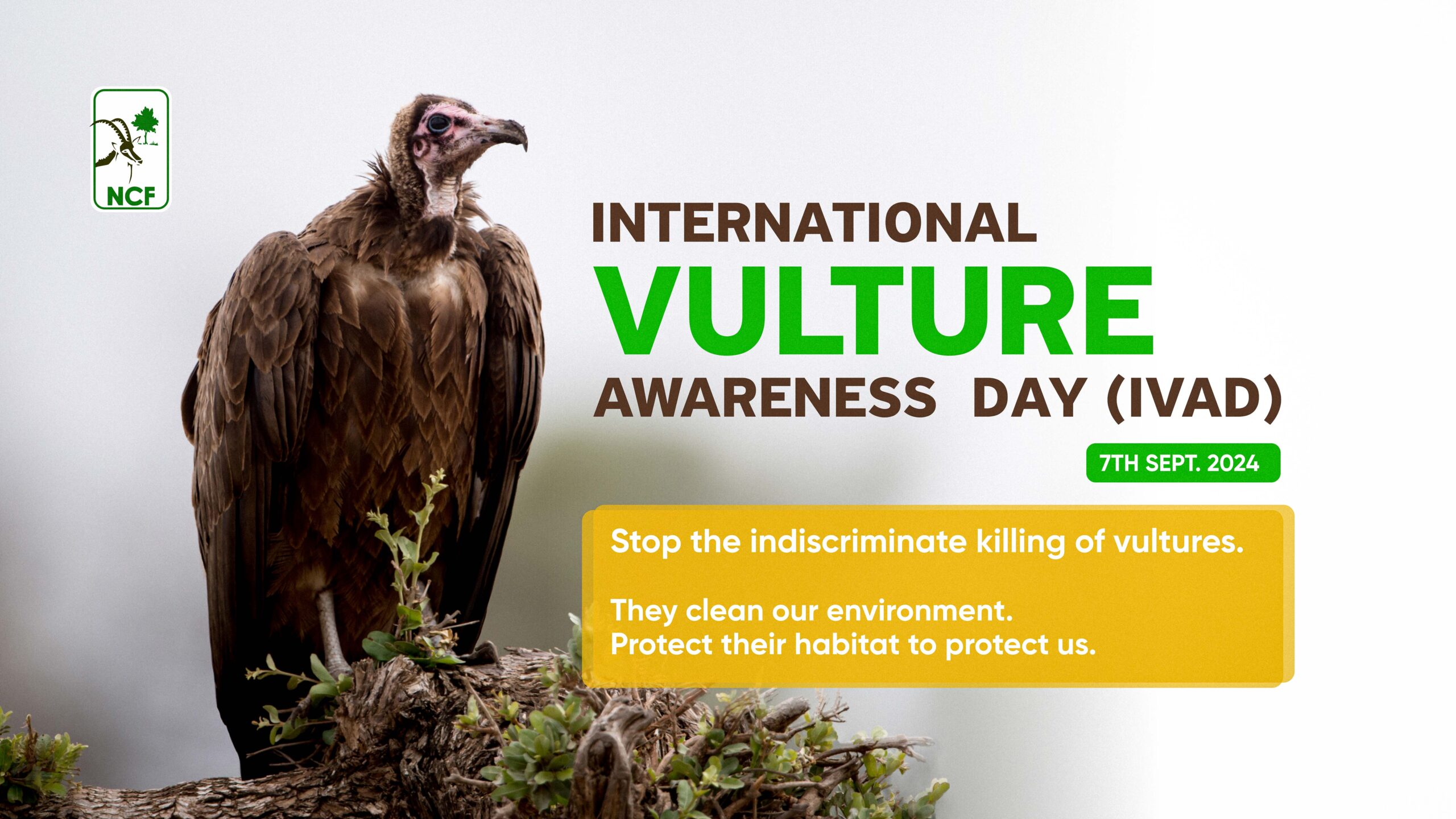
The Plight of Vultures: Curator of Our Ecosystem Under Threat
When you think of vultures, what comes to mind? For many, these majestic birds are unfairly associated with death and decay. However, on International Vulture Awareness Day, it’s time to change this narrative and recognize the vital role vultures play in our environment. These birds are crucial to maintaining the health of our ecosystems, but they face severe threats, particularly in West Africa.
Nature’s Cleanup Crew
Vultures are essential to our environment, acting as nature’s cleanup crew by feeding on carcasses that could otherwise spread diseases like anthrax and rabies. Without them, the balance of our ecosystems would be at risk, leading to increased disease outbreaks and environmental degradation.
The Threats They Face
Despite their importance, vultures are facing a dramatic population decline in West Africa, primarily due to human activities. These threats include:
➢ Poisoning for Belief-Based Uses: Vultures are often poisoned for their body parts, which are used in traditional medicine and spiritual practices. This is particularly prevalent in countries like Nigeria, Ghana, and Burkina Faso, where vultures are believed to have mystical powers that can cure ailments, bring good luck, or protect against evil spirits.
➢ Habitat Loss: Urban development and agricultural expansion have led to the destruction of vulture nesting and roosting sites, further contributing to their decline.
➢ Bushmeat Trade: Vultures are hunted for their meat, which is sometimes sold as a delicacy or consumed as bushmeat, particularly in areas where other food sources are scarce.
➢ Persecution as Pests: In some regions, vultures are killed because they are mistakenly viewed as pests or are associated with bad omens.
NCF approach towards the conservation of Vulture
At the Nigerian Conservation Foundation (NCF), we are actively working to protect vultures and raise awareness about their critical role in our ecosystem. Our initiatives include:
➢ Community Outreach and Education: We engage with local communities to educate them about the importance of vultures and to dispel harmful myths that lead to their persecution.
➢ Market Surveys: We have conducted surveys in different markets to create awareness about the illegal trade of vultures, helping to highlight the scale and impact of this practice.
➢ Vulture Tracking and Monitoring: We engage with communities in Anambra (Akwa-Etiti) to track and monitor vultures in their areas, fostering local involvement in vulture conservation.
➢ Vulture Safe Zone Project: In Akwa-Etiti, we organize capacity-building programs for local communities as part of our Vulture Safe Zone project. This initiative includes training community representatives on the monitoring of vultures, championing site-based conservation activities, monitoring existing vulture populations, and educating individuals within their community on the role vultures play in preventing their extinction. The communities were provided with binoculars, GPS, and other equipment to help in monitoring vultures in the area.
➢ Promoting Alternatives: We conduct stakeholder engagements to promote plant-based alternatives to vulture parts in traditional medicine practices, reducing the demand for vulture parts and encouraging more sustainable practices.
➢ Policy Advocacy: We are involved in advocating for stronger laws and enforcement mechanisms to protect vultures from illegal hunting and trade.
➢ Research and Monitoring: We conduct research to monitor vulture populations and the threats they face, helping to inform our conservation strategies.
In addition to these efforts, the West African Vulture Action Plan serves as an expanded policy document to guide regional interventions in vulture conservation. This plan outlines strategies to mitigate the threats facing vultures, particularly those driven by belief-based practices, and promotes collaboration across West African countries to protect these vital birds.
The Consequences of Inaction
The decline in vulture populations has far-reaching consequences. As scavengers, vultures play a crucial role in preventing the spread of diseases. Their absence would lead to a rise in other scavengers, such as feral dogs and rats, which are less effective at controlling disease outbreaks and could even exacerbate the problem.
What Can Be Done?
To protect these vital birds, concerted efforts are needed at both the local and international levels. Conservation strategies should include:
➢ Raising Awareness: Educating communities about the importance of vultures and dispelling myths that lead to their persecution.
➢ Strengthening Legislation: Implementing and enforcing laws that protect vultures from illegal hunting and trade.
➢ Promoting Alternative Livelihoods: Providing economic alternatives for communities that rely on the trade of vulture parts for income.
➢ Supporting Conservation Programs: Engaging in and supporting conservation initiatives that focus on habitat preservation and reducing human-wildlife conflict.
On this International Vulture Awareness Day, let’s take a moment to appreciate these misunderstood birds and commit to protecting them for future generations. Without vultures, our ecosystems would be poorer, and the health of both wildlife and humans would be at greater risk.



